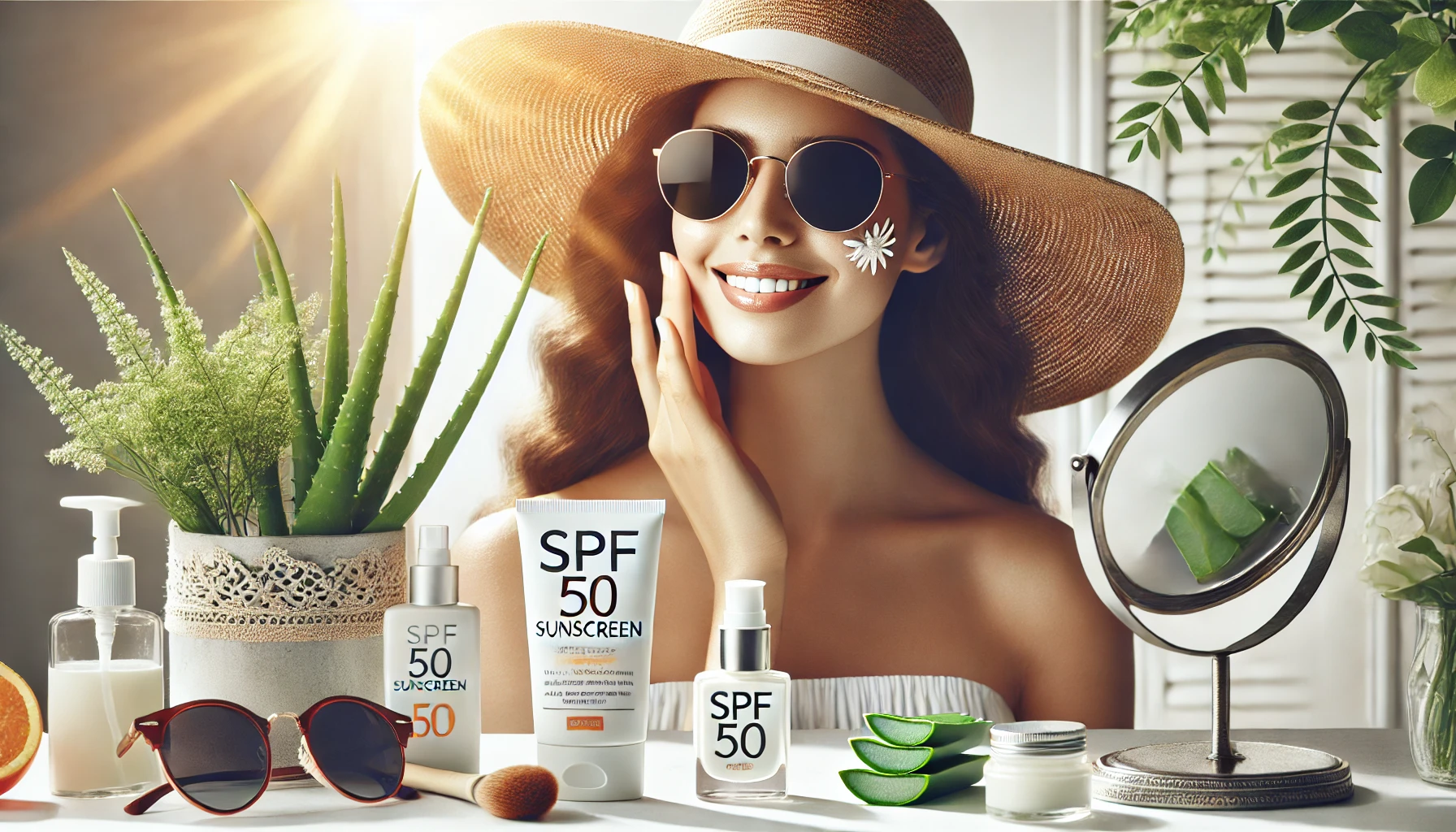Nobody can deny that having healthy skin is essential for living a truly wonderful life. Healthy skin not only enhances your appearance — it also protects you from countless external threats and keeps your body functioning properly.
Let’s take a closer look at the importance of your skin, the risks of skin cancer, and how to protect yourself from one of its biggest enemies: the sun.
Your Skin: The Body’s First Line of Defense
The skin is the largest organ of the human body and one of the most vital. It protects you from infections, prevents dehydration, and acts as a shield between your internal organs and the outside world.
Its functions include:
- Maintaining a stable body temperature
- Sensing pain, pressure, texture, and temperature
- Sending sensory signals to the brain
- Protecting against harmful microorganisms
Healthy skin is essential to maintaining your immune defense system and your overall well-being.
Skin Cancer: A Hidden Threat
Like any other organ, the skin is susceptible to cancer. Skin cancer is caused by the uncontrolled growth of abnormal skin cells. Unlike normal cells, which grow, divide, and die at a controlled rate, cancer cells lack this internal control and continue to multiply.
This unchecked growth can damage surrounding healthy cells, interfere with bodily functions, and even become life-threatening if not treated early.
The body does respond to cancer cells, but these abnormal cells can still outmaneuver the immune system. As the cancer spreads, it can divert nutrients away from healthy cells, weakening your overall health.
In many cases, cancer cells even break away from their original site and spread (metastasize) to other parts of the body, forming new tumors elsewhere.
Types of Skin Cancer
Skin cancers are typically categorized into two main types:
Non-Melanoma Skin Cancers
These originate from non-melanocyte skin cells, such as basal or squamous cells. They tend to grow slowly and are more common, but still require treatment to avoid complications.
Melanoma Skin Cancers
Melanomas are more aggressive and begin in the melanocytes, the cells that produce melanin — the pigment that gives your skin its color. Melanoma is less common but significantly more dangerous if not detected and treated early.
Ultraviolet (UV) Rays: The Sun’s Silent Danger
The sun is both a friend and a foe to your skin. On one hand, sunlight helps your body produce vitamin D (essential for bones and immunity). On the other hand, overexposure to UV rays can cause serious and long-term damage.
Too much sun can:
- Accelerate premature aging and wrinkles
- Cause DNA mutations in skin cells
- Increase the risk of skin cancer, especially melanoma
- Result in sunburns, which weaken the skin’s defense barrier
It’s important to find a safe balance between sun exposure and protection.
How to Prevent Skin Cancer and Sun Damage
Thankfully, skin cancer is one of the most preventable types of cancer — and protecting your skin doesn’t require complicated routines. With a few smart habits and daily care, you can greatly reduce your risk and keep your skin beautiful, strong, and safe.
1. Use Sunscreen Daily
A broad-spectrum sunscreen (SPF 30 or higher) is your skin’s best defense against harmful UV rays. Apply it:
- Every day — even on cloudy days
- 15–30 minutes before sun exposure
- On all exposed areas (face, neck, hands, ears, etc.)
Reapply every two hours, especially if you’re sweating or swimming.
2. Avoid Peak Sun Hours
The sun’s rays are strongest between 10 a.m. and 4 p.m. If possible, stay in the shade or indoors during this window. If you’re outside:
- Wear wide-brimmed hats, sunglasses, and UV-protective clothing
- Seek shade under umbrellas, trees, or protective structures
3. Examine Your Skin Regularly
Monthly self-examinations can help you detect early signs of skin cancer. Look for:
- New or changing moles
- Unusual spots that bleed, itch, or don’t heal
- Irregular shapes or colors in existing marks
Use a mirror or ask someone to check hard-to-see areas like your back or scalp.
4. Visit a Dermatologist Annually
An annual full-body skin check by a dermatologist is essential, especially if:
- You have fair skin or light eyes
- You’ve had serious sunburns in the past
- There’s a family history of skin cancer
Early detection saves lives — don’t skip your checkup.
5. Choose Skincare Products Wisely
Use products that support skin health and avoid harsh chemicals. Look for:
- Antioxidant-rich moisturizers (vitamin C, E)
- Fragrance-free options for sensitive skin
- After-sun care with aloe vera to soothe minor burns
Glowing Skin, Safe Skin: Your Daily Choice
Caring for your skin is more than just vanity — it’s an act of self-love and protection. Your skin works hard every day to protect you from the world. The least we can do is protect it in return.
By incorporating smart sun protection habits into your daily life and staying aware of changes in your skin, you can enjoy healthy, radiant skin for years to come — free from pain, risk, and premature aging.
Start today. Your future self will thank you.
